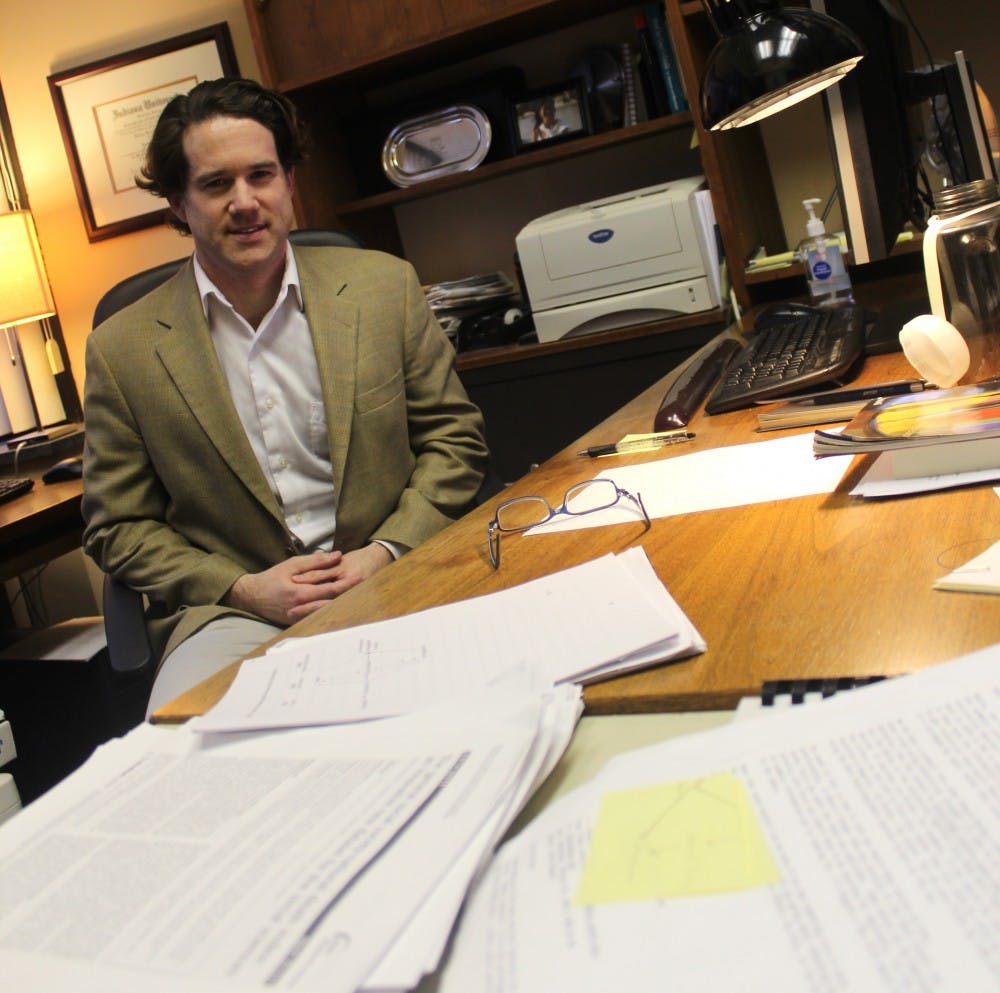
While many focus on the mental trauma of prison life, a recent study co-authored by Penn sociology professor Jason Schnittker is more concerned with the mental health of inmates once they are out of prison.
The study “Out and Down: Incarceration and Psychiatric Disorders,” shows that psychiatric disorders among former inmates tend to predate incarceration, while mood disorders — such as depression — are often linked to the prison experience and may cause ex-convicts to have trouble reintegrating into society.
Published in the December issue of the Journal of Health and Social Behavior, the study uses data culled from the National Comorbidity Survey Replication, a survey conducted in the early 2000’s. The NCS-R looked at psychiatric disorders in a slice of the American population — about 9,000 people — aged 18 years or older. Participants were asked all the questions a mental health professional would ask in order to ascertain their psychiatric health. In addition, examiners asked participants if they had ever been incarcerated — 14 percent responded “yes.”
By looking at these and other data, Schnittker and his colleagues — Michael Massoglia at the University of Wisconsin-Madison and Christopher Uggen at the University of Minnesota — were able to discern a relationship between previous incarceration and mood disorders.
“We expect former inmates to go straight,” Schnittker said, “but our studies suggest that their mental health is a barrier to getting there and to finding jobs.”
The study concluded that “some of the most common disorders found among former inmates emerge in childhood and adolescence and therefore predate incarceration.” It went on to say that many psychiatric disorders are the result of childhood adversities such as mental illness, substance abuse, criminality and violence.
But, according to Schnittker, “if you look at the social determinants of crimes, and you look at the social determinants of childhood psychiatric disorders — there’s a lot of overlap.”
“When it comes to mood disorders, prison increases your risk,” Schnittker said. “The average age for mood disorders is 28, and the average age for incarceration is 21.” He added that “most people have a disorder, and they never get treatment.”
Schnittker’s work focuses on social factors related to health, and one or two of his recent papers have explored the relationship between incarceration and race.
“If you look at the rate of incarceration in the United States, it’s disproportionately affecting young black Americans,” Schnittker said — a fact which he believes may be leading to disparities in health care. “There’s a need for better access to health care for former inmates [who] have a hard time finding a job, especially with health benefits.”
He acknowledged that there are initiatives in place to help ex-cons with psychiatric disorders like the Pennsylvania Prison Society, but said that “we could do more.” Schnittker urged Americans to see social problems as interdependent — incarceration affects health care and vice versa.
“There’s no other country that comes close in the terms of the number of people we put behind bars,” Schnittker said. “We would like to see more former inmates getting a bit of a helping hand.”
The Daily Pennsylvanian is an independent, student-run newspaper. Please consider making a donation to support the coverage that shapes the University. Your generosity ensures a future of strong journalism at Penn.
DonatePlease note All comments are eligible for publication in The Daily Pennsylvanian.





